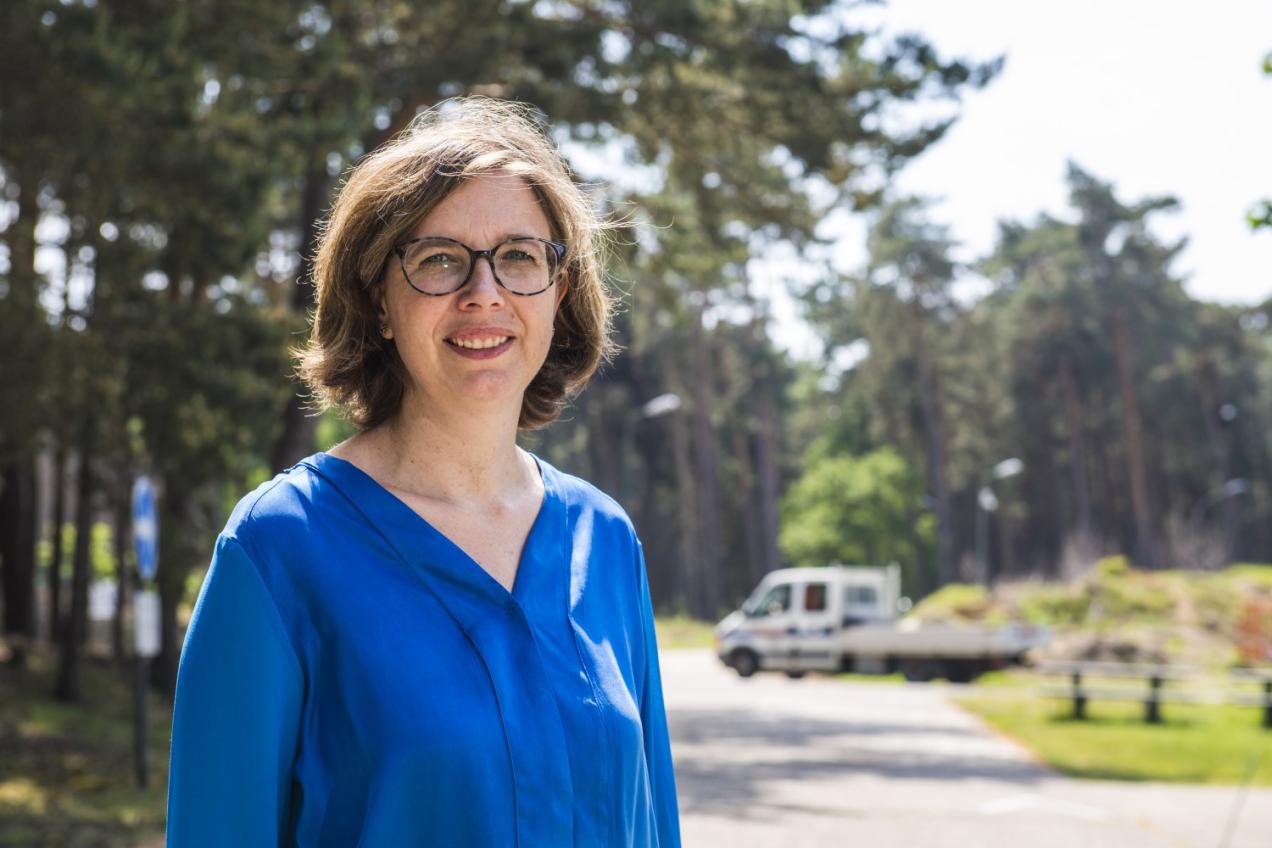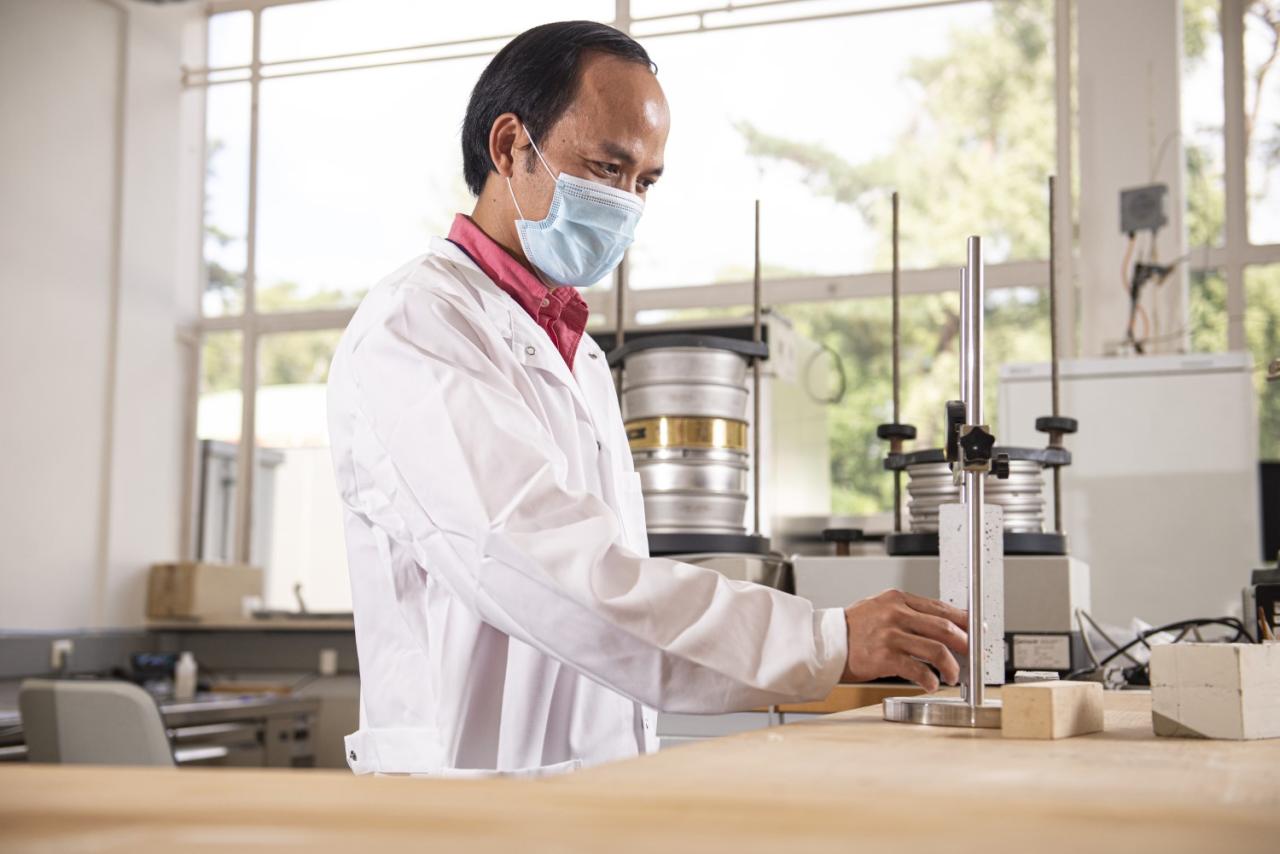SCK CEN not defeated by coronavirus
SCK CEN remained 100% operational thanks to the flexibility and dedication of employees

The coronavirus unexpectedly pushed the pause button on our world, but thankfully not on medical radioisotope production. As one of the world leaders in production of these products, SCK CEN continued to operate at full capacity. Remaining operational requires a strict coronavirus policy. "We had to rethink and reorganise ourselves in no time at all," notes Kathleen Overmeer, Director of General Services and Administration. Here, she looks back on the pandemic, its impact, and the resilience to come out of it together.

On Wednesday, 12 March 2020, the World Health Organization (WHO) officially declared the outbreak of the virus SARS-CoV-2 a pandemic. In order to limit the further spread of coronavirus, contact had to be restricted as a preventative measure. Many firms therefore shut down completely, but SCK CEN did not. The research centre continued to operate at full capacity – under numerous COVID-19 measures.
Kathleen Overmeer: “The production of medical radioisotopes cannot be allowed to cease under any circumstances. Cancer patients need them for their diagnosis or treatment. And that was something the federal government recognised as well, designating the production of medical radioisotopes and other nuclear and radiological activities as an essential service."
Did that recognition from the federal government come as a surprise?
Kathleen Overmeer: "No, people's lives depend on it. There is no available alternative to our BR2 research reactor to provide half of the necessary supply. We know that our service is essential and we put everything in place from the start so that we could continue to provide that service – under a strict set of coronavirus measures. In March, we published on our website: 'You can count on us'. One year later, I am proud to say we have delivered on that promise. We owe this to the dedication and flexibility of all of our employees. They applied the coronavirus policy in the workplace day in and day out. A policy is only as successful as its implementation."
The pandemic, on the other hand, came as a big surprise. How did SCK CEN keep it under control?
Kathleen Overmeer: "As a nuclear institution, we have emergency plans in place for a wide range of accident scenarios, but they don't include a scenario for a pandemic. No one has a plan for that scenario up their sleeve."
Yet SCK CEN has not been resting on its laurels, I assume?
Kathleen Overmeer: "No, we set up a crisis team almost immediately. This crisis team met daily to monitor the situation in brief. It's important that we protect our employees from the virus, but at the same time it's important we get through the crisis with as many opportunities as possible. In that crisis team, we allocated six roles: one for general management, one for the medical service, one for the safety service, one for the Committee for Prevention and Protection at Work, one for the communications service and one for HR."
We delivered on that promise.
Why were these roles chosen?
Kathleen Overmeer: "There are several parameters in the balance, which the crisis team needs to take into account: our responsibility towards our employees, their well-being, our social responsibility, our business continuity, and our long-term future. Choosing different roles and therefore perspectives enables us to maintain a balance. We closely monitored developments on the shop floor and beyond: How is the pandemic evolving? What policy decisions is the federal government making?"
Has SCK CEN been able to apply the government measures one-to-one on the work floor? Or did it sometimes mean finding a custom solution?
Kathleen Overmeer: "Translating federal policy to the work floor in practice requires some creativity, certainly for the HR department. Take, for example, the 'coronavirus parental leave' or the 'coronavirus time credit'. What does that involve? How do you apply for it? Can you combine it with the parental leave you are already taking? And so on. Our HR department looked for a suitable answer to each question. If a solution was not immediately at hand, our HR colleagues were there to listen. And the latter is invaluable in these times when our mental well-being is being tested."

The HR department was undoubtedly not the only department to provide custom solutions.
Kathleen Overmeer: "No, absolutely not, and there are a few examples that show that. When certain products were found to have run out, other colleagues came to the rescue by sewing masks themselves or producing their own hand sanitiser. And we showed our collective commitment beyond that too [see text box]. The cleaning service increased the cleaning frequency and was called in to thoroughly disinfect offices in the event of confirmed infections. The technical services provided strict supervision for contractors so that the reopening of the sites and the works themselves could proceed in a Corona-safe manner. In no time at all, the ICT service rolled out a digital environment to remove possible technological barriers to teleworking and collaboration. The finance department closely monitored the budgetary impact of the coronavirus crisis. The SCK CEN Academy and our internal training service switched to online courses. The rooms in Lakehouse and a villa in the residential district were rearranged so that international staff and students living together in the residential district could – if necessary – spend their quarantine period there. The procurement department moved heaven and earth to order protective equipment. So we were able to both carry out our daily duties and tackle additional challenges. I'm proud of our staff, because it took a lot of resilience and flexibility."
Collective commitment
The research centre SCK CEN has also made its expertise and infrastructure available to wider society. "We donated disposable latex gloves to the hospital in Mol, computers to the youth welfare organisation Tonuso vzw in Brussels, and our qPCR machine to the task force. With the latter, we helped – together with other players in the sector – to increase the number of coronavirus tests in Belgium from 2,000 to 10,000 per day," explains Kathleen Overmeer. SCK CEN also offered to sterilise masks with hydrogen peroxide when hospitals were facing shortages.
SCK CEN replaces extinguisher and drinking water network.
Brand new fire extinguisher water network facilitates more efficient firefighting.